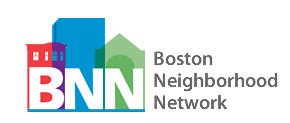 There’s something to be said for a city acquiring a Low Power FM radio signal. Take Boston, for example, which snagged an LPFM license from the Federal Communications Commission in 2015 and has given the task of running the shebang to the Boston Neighborhood Network. To get things started, the municipality is holding no less than three public hearings on what WBCA-FM should sound like.
There’s something to be said for a city acquiring a Low Power FM radio signal. Take Boston, for example, which snagged an LPFM license from the Federal Communications Commission in 2015 and has given the task of running the shebang to the Boston Neighborhood Network. To get things started, the municipality is holding no less than three public hearings on what WBCA-FM should sound like.
“I encourage residents to come out and discuss how our new community radio station can best serve our neighborhoods,” declared Boston Mayor Martin J. Walsh in a press release. “I thank BNN for their partnership with the city to create another platform for civic engagement.”
Community radio stations constantly struggle to get the word out about themselves. Given that challenge, there just isn’t any substitute for the mayor of a city asking its residents to get involved.
Here’s where the meetings will take place:
May 18, Roxbury Innovation Center at the Bolling Building, 2300 Washington Street, Roxbury
June 15, Joseph P. Tynan School, 650 E 4th Street, South Boston
June 22, Jackson/Mann K-8 School, 40 Armington Street, Allston
SFGate has a rather condescending item about the meetings.
“In an age of smartphones and streaming music services, a community radio station may seem as quaint and retro as vinyl LPs and transistor radios,” the article begins. “Boston is hoping to prove that thinking wrong by demonstrating support for its own low-power FM radio station.”
Reading the BNN press release on the hearings I was unable to find any evidence that its staff have taken on this task to de-quaintify the idea of a locally based radio media center. WBCA will run on 102.9 FM from 6:00 p.m. to 2:00 a.m. through the week. Here’s more:
“Initially, early evening broadcasting will feature current BNN programming including BNN Live studio programs and Boston Neighborhood Network News nightly at 9:00 p.m. BNN will develop late evening programming as a resource for local artists, bands, musicians, poets and performers. The recent series of ‘Boston Creates Town Hall meetings revealed a strong interest by local talent in not only performing music and spoken word, but also engaging local youth in mentoring and training. BNN will also develop new opportunities for community participation.”
The Boston Neighborhood Network has been around for over 30 years, its community access non-profit overseer funded by the city’s first cable franchise agreement in 1983.


